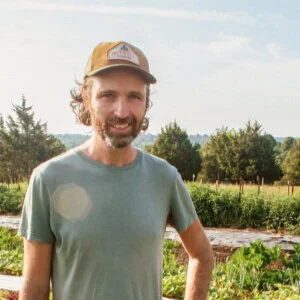Choose-Your-Own-Adventure No Till
No-till expert Jesse Frost talks about soil and about choosing an approach to no-till suited to local conditions.
In this rebroadcast of the radio show that aired live on July 7th, we talk about soil and no-till practices with market gardener, farm journalist, and podcaster Jesse Frost.
He’s the host of The No-Till Market Garden Podcast, and he and his wife are no-till farmers at their Rough Draft Farmstead in Kentucky.
Frost’s new book is The Living Soil Handbook.
Choosing a No-Till Model
Frost says that there is no one-size-fits-all model of no-till growing.
It depends on the context — things such as soil, rainfall, climate, and the crops being grown.
No-till is as varied as the growers using it.
3 Principles to Grow By
A successful no-till system goes beyond not tilling.
Frost suggests three principles growers and gardeners can use to guide their approach to tillage:
Disturb the soil as little as possible
Keep the soil covered as much as possible
Keep the soil planted as much as possible


